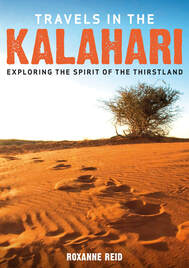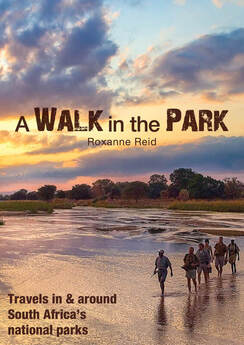‘Sometimes there’s lots of game, but sometimes there’s just lots of trees,’ warns field guide Cecilia Phophi as she prepares to take us on a sunset drive from Letaba in the northern section of the Kruger National Park. We’re hoping it’s not a tree day.
Cecilia is one of only eight female guides in the park. She first studied eco-tourism management but discovered that she loved being in the bush so much that she followed up with an NQF4 field guiding course, then got further on-the-job training at Kruger, where she’s been working since 2006.
The sunset drive is her favourite activity, maybe because it’s a chance to see leopard at least two or three times a week, and the leopard is the animal she feels the most affinity for.
There are three with territories around Letaba camp. One female is sometimes seen in the riverbed below the camp’s restaurant.
‘Magnificent, they’re such magnificent animals,’ says Cecilia. No argument here.
The drive starts slowly. A lone elephant bull feeding, a couple of kudu, a quartet of giraffes delicately nibbling the tops of some acacia trees, and lots of impala.
But no sign of a leopard.
Before long we’re reduced to trees, lots and lots of mopanes, which are such a feature of the veld around Letaba, much loved by elephants. Cecilia stops the huge open-top diesel truck and points to the right.
‘This one is the lala palm. Elephants eat the leaves of this tree. Lala means to sleep and the locals make a traditional wine from the tree, as well as using the leaves for weaving mats and baskets.’
The truck lumbers slowly and noisily along the Letaba River in the direction of the Engelhard dam.
‘The best speed for game viewing is 25–30 kilometres an hour,’ she tells us.
In one of the loops along the river, we stop to watch the hippo and a fat croc cooling himself at the end of a hot day by opening his mouth in a wicked grin.
‘People think they’re waiting to eat something when they do that, but it’s just for temperature regulation,’ she explains.
Just before a bravura sunset through low cloud over the river, we spot an openbill stork doing a spot of late-afternoon fishing and two Egyptian geese with a flotilla of fluffy goslings. A couple of waterbuck come charging out of the thicket into the middle of the river, wildly splashing water as they run and buck.
‘They do that when they’re being chased by a predator,’ Cecilia says. ’It’s their way of getting away because they know the big cats don’t really like going in the water.’
We eagerly scan the river’s edge, but there’s nothing. The waterbuck were just overreacting to a cracking twig or the alarm call of a bird.
Here, close to the river is a jackalberry tree. It’s covered in hairy mud. Cecilia explains that elephant, rhino and buffalo often wallow in a mud bath and then rub themselves against a suitable tree as a way of ridding themselves of parasites.
‘Sometimes the older buffalo bulls will rub and rub their bums bald. That’s why you see hair caught in the mud on the tree bark.’
With not much predator action along the river south of camp, she changes tack and goes north, where we find a buffalo’s bony ribcage, proving that lions were here not long ago.
‘This kill happened two weeks ago,’ she confirms. ‘It was a busy road for four days. A vee-eery busy road.’
This is a strange quirk of field guides. They have a tendency to repeat themselves, usually twice, sometimes even three times. Perhaps they think we’re hard of hearing, maybe even a bit slow, so we need constant reinforcement to learn.
‘Those are marabou storks in the tree,’ she says now. ‘Marabou storks. You often find them along the river or at a rubbish dump. We say they’re employees of the park because as scavengers they’re working to clean up the place.’ Their feet are naturally black, but right now they’re as white as snow – a result of the rather peculiar habit they have of defecating on their feet.
We haven’t seen much, but it’s been a smorgasbord of smells, from a steaming-fresh pile of elephant poo to the acrid stench of bats roosting under the bridge over the Letaba River, even the aroma of diesel fumes.
But after dark, with the light of a full moon shining silver along the river, we spot a scrub hare bounding across the road. Then our spotlight picks up an African wild cat nosing through grass and under bushes in search of dinner.
Returning to camp, there’s a large spotted genet in tree. ‘It has a black tip to its tail, a black tip. That’s how we know it’s not a small spotted genet, which would have a white tip.’
It’s not a leopard, for sure, but it sure beats an endless parade of trees.
Copyright © Roxanne Reid - No words or photographs on this site may be used without permission from roxannereid.co.za


